Many of the symptoms attributed to menopause are indicators that your hormones, particularly estrogen, are declining. These dropping estrogen levels can affect your sleep by causing night sweats, anxiety and depression, and increase the prevalence of primary sleep conditions such as restless leg syndrome. All of these factors can lead to disrupted and poor quality sleep – but don’t despair! There is no need to feel condemned to a lifetime of sleepless nights. Read on for a proactive approach with practical ways to help you get the sleep you deserve!
Understanding hot flashes and night sweats
Hot flashes and night sweats are the most frequently experienced symptoms of menopause. Approximately 55-75% of women will experience some level of hot flashes during menopause. Although the exact cause is still up for debate, the majority of research suggests that they are in fact caused by dropping estrogen levels.
Declining estrogen has widespread effects on the body, however, the mechanism behind these symptoms is not always straightforward and differs depending on the area affected. Hot flashes for example, have been attributed to lower estrogen levels disrupting the natural cascade of hormones and neurotransmitters responsible for thermoregulation. There are many factors that can contribute to the length intensity and frequency of hot flashes. Thankfully, this means there are many things you can do to reduce the severity of them.
How to minimize hot flashes and night sweats
Although declining estrogen levels cannot be avoided during menopause, there are many natural and non-hormonal ways you can support your body through this transition.
Identify and avoid foods, substances or situations that act as triggers. Pay attention to when you experience hot flashes in order to pinpoint the potential cause. Specific foods and drinks are known triggers, but stress can also act as a trigger for hot flashes.
Some common triggers include:
- Physical inactivity
- High levels of stress
- Hot drinks
- Spicy foods
- Smoking
- Alcohol intake
- Caffeine consumption
Make sure you are getting enough magnesium. Magnesium levels in the body tend to deplete with age and can cause insomnia.
Try an herbal approach. The signs and symptoms of menopause are numerous and can be overwhelming. Hot flashes and night sweats are just one part of the picture but it is an area where herbs have been found to be considerably helpful. There are numerous phytoestrogenic herbs that can help balance hormones and reduce hot flashes such as black cohosh, red clover and licorice. While the exact mechanism behind the efficacy of these herbs is still not fully understood, it is believed to be due in part to the presence of isoflavones. Isoflavones are compounds categorized as phytoestrogen, and are what gives these herbs their estrogenic properties and help the body to compensate for lost estrogen.
Getting a good night’s sleep during menopausal years
Menopause and the symptoms that come along with it may be inevitable, but the good news is that there are many things you can do to support your body and ensure that you get the best quality sleep possible.
Cultivate good sleep habits
Often overlooked, our daily habits and routines are a key factor in getting a good night’s sleep. Evaluate your own daily habits and identify any potential culprits that could be interfering with your sleep.
Things you can do to combat some of the common offenders include:
Turn off electronics and personal devices at least two hours before bed. Bright light from sources such as television or blue light from personal devices, have been found to encourage a later shift in both the time you fall asleep and the time you wake up.
Get outside during the day. The most powerful external stimuli that affects the human circadian rhythm is daylight. Daylight helps with the secretion of serotonin and promotes the regulation of this internal 24-hour cycle. Use this to your advantage by increasing your daily exposure to natural light.
Avoid stimulants before bed. We all like to point at coffee, but there are other stimulants such as sugar and exercise which can have a similar effect on your ability to fall asleep.
Support your stress response and increase your body’s ability to relax. This can include things like starting a daily meditation practice, deep diaphragmatic breathing or spending more time in nature.
Fuel up with the right foods
The benefits of a well-rounded diet are well known but did you also know, there are specific foods that support both menopausal symptoms and sleep quality? Adding these foods to your plate can help to tame those night sweats while encouraging a restful night’s sleep.
Consume more magnesium-rich foods. Magnesium is involved in over 800 reactions in the body. This includes its role in muscle contraction and relaxation, which can positively affect vasomotor tone, potentially aiding in the reduction of hot flashes. Additionally, magnesium helps with relaxation through the inhibition of excitatory pathways in the brain and increases the release of something called brain-derived neurotrophic factor (BDNF). BDNF helps to activate the parasympathetic nervous system which is known for promoting a state of relaxation and calm, setting the stage for an improved sleep. Foods like kelp, pumpkin seeds, coconut, cacao, nuts and legumes are good sources of magnesium.
Add phytoestrogens into your diet. These are natural, plant-based foods that have mild estrogenic effects in the body and can be beneficial to help support your body at a time when estrogen is naturally declining. Try foods like organic tofu, tempeh, miso, flaxseeds, pumpkin seeds and sunflower seeds.
Enjoy herbal teas before bed that include valerian, hops or passionflower. These herbs can help to improve sleep quality.
Targeting your supplementation
When used in combination with lifestyle and nutritional changes, adding the right supplement to your routine can take your results to the next level.
Meno-Prev is a well-rounded herbal supplement that helps to alleviate the most commonly experienced menopausal symptoms including hot flashes and night sweats, mood and memory, all while supporting liver health.
Magnesium + GABA & Melatonin is designed to help with all aspects of sleep by combining three sleep-promoting powerhouses into one formula. Magnesium, GABA and melatonin act together to promote a state of relaxation while decreasing feelings of stress and anxiety.
5-HTP is a precursor to serotonin and can be further metabolized to form melatonin, which helps not only with sleep but mood support too. 5-HTP supplementation has been shown to reduce the amount of time it takes to get to sleep.
Curious to learn more about menopause? Head over here to understand how you can better navigate menopausal symptoms.

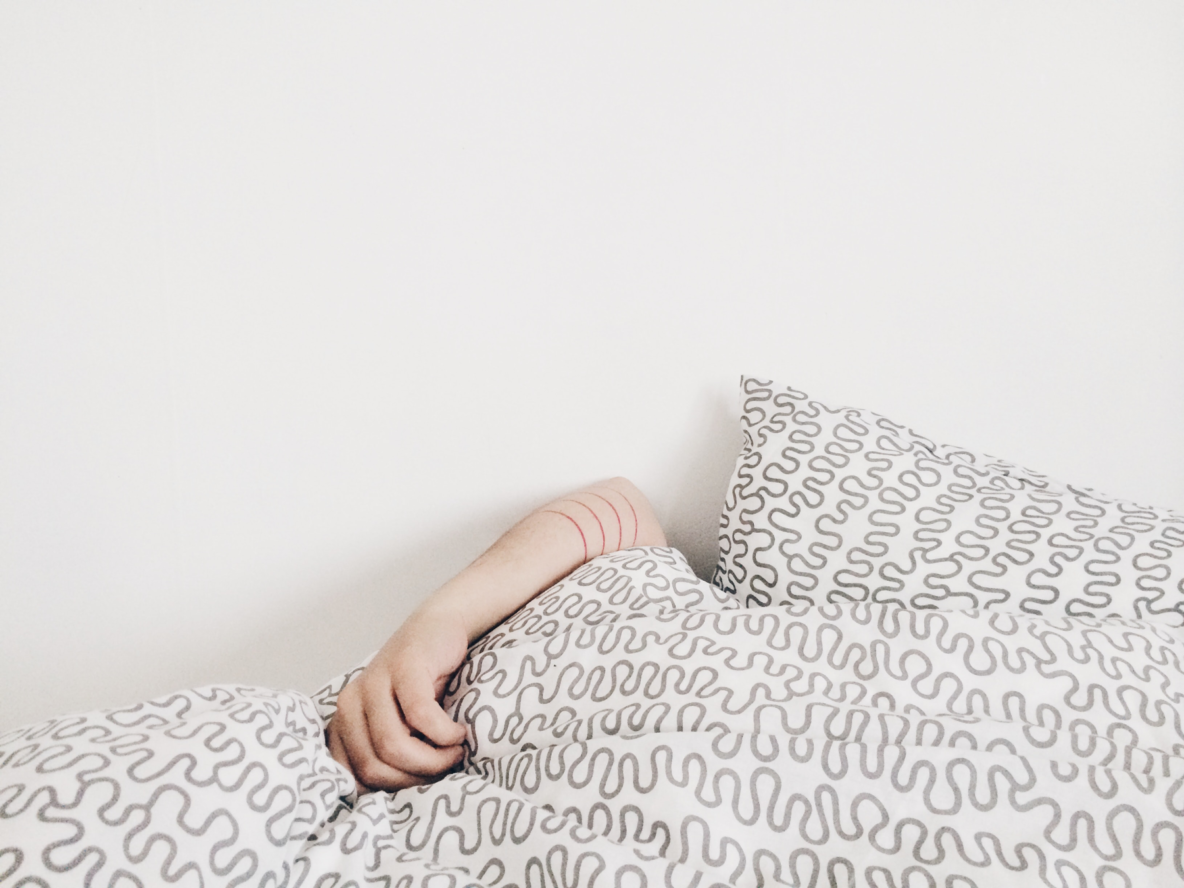
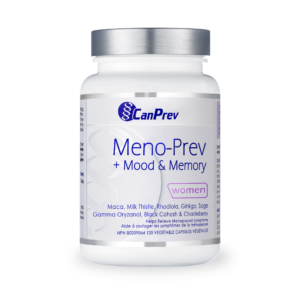
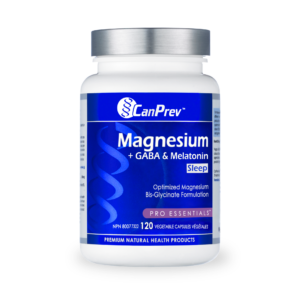
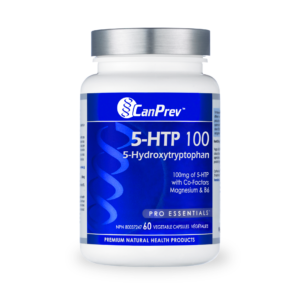
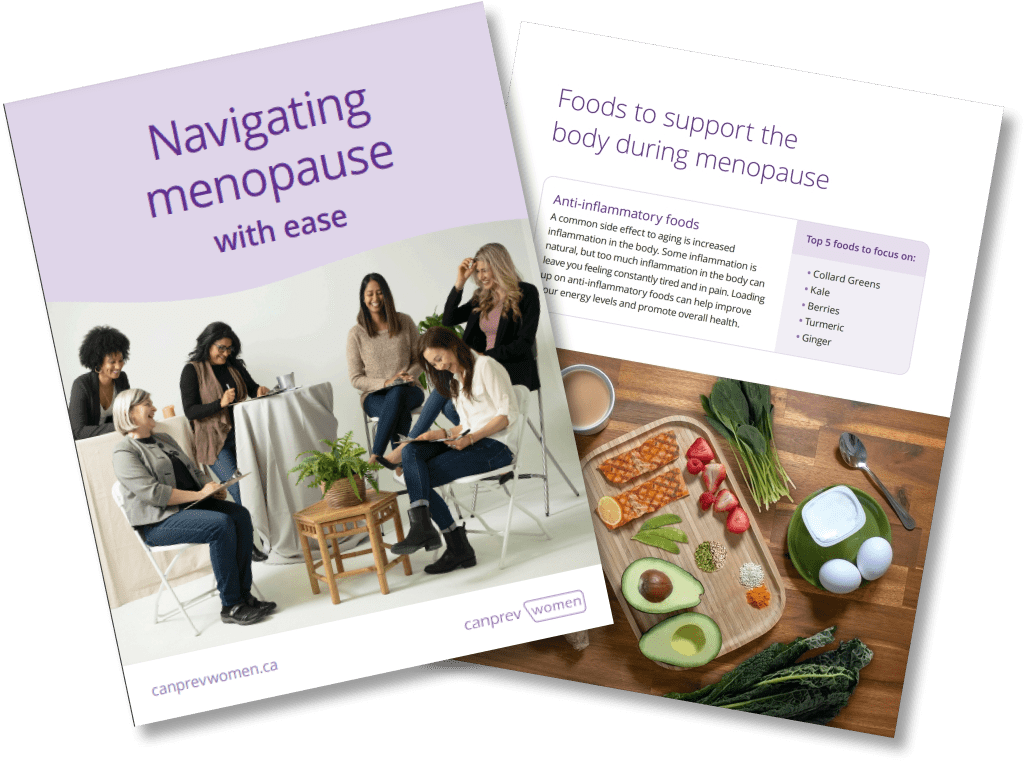
2 Comments on “How to sleep soundly during menopause”
I’m 51 and in full. Menopause. I had a partial hysterectomy done, only ovaries left. My hot flashes, night sweats, brain fog and INSOMNIA are brutal. Does the Meno Prev have any HRT ingredients as breast cancer is in my family (mom mom had it )
Hi there! Thank you for sharing this, and for your question. We’re so sorry to hear you’re suffering from these symptoms.
We recommend speaking with your trusted healthcare practitioner before beginning any new natural health product, including Meno-Prev, to be sure that it’s right for you. Hopefully you’re able to find some relief soon! Please don’t hesitate to reach out to us if you have any further questions or concerns.